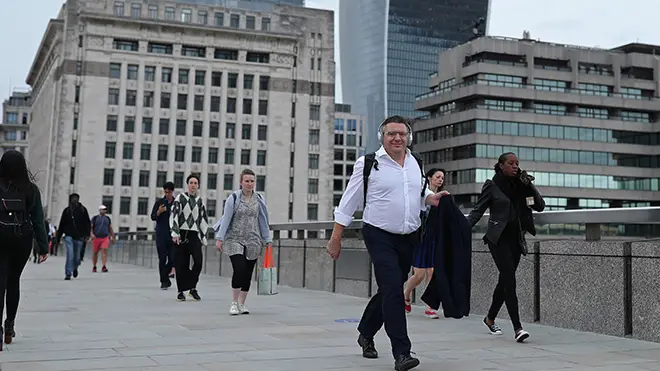
Natasha Devon 6pm - 9pm
4 March 2021, 16:15 | Updated: 4 March 2021, 17:18

Rishi Sunak confirmed in his Budget 2021 announcement the coronavirus furlough scheme will be extended until September but why? Especially when lockdown ends in June?
The furlough scheme has been extended until September 2021 as part of Rishi Sunak’s Budget 2021 to help businesses and employees recover from the coronavirus pandemic.
The scheme, which was introduced by the government during the first lockdown in March 2020, is said to help millions through the “challenging months ahead”.
Related article: Furlough scheme updates: When does it end and how to calculate your claim
The furlough extension, which will phase out by September, currently contributes 80% of an employee's wages with employers set to contribute 10% by July and 20% by August and September.

However, with the roadmap out of lockdown set to officially end on 21 June - why has furlough been extended until September?
With many questioning whether lockdown will actually finish by the end of the roadmap, the Chancellor has explained the extension is to help businesses ease out of any financial struggles.
He pledged he would “continue doing whatever it takes to support the British people and businesses through this moment of crisis”.
The Coronavirus Job Retention Scheme has reportedly protected around 11million jobs since it was created in March 2020.

Chancellor to extend furlough scheme until September

The Government has also confirmed those who are self-employed will also receive extra grants until September.
They launched a fourth grant to cover loss of earning during February-April 2021 and will then release grant number five for May-September 2021.
Sunak has said: “Our Covid support schemes have been a lifeline to millions, protecting jobs and incomes across the UK.
"There's now light at the end of the tunnel with a roadmap for reopening, so it's only right that we continue to help business and individuals through the challenging months ahead - and beyond."